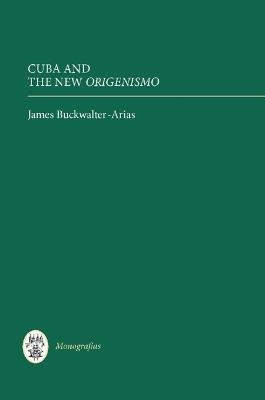
Cuba and the New Origenismo
Seiten
2010
Tamesis Books (Verlag)
978-1-85566-195-0 (ISBN)
Tamesis Books (Verlag)
978-1-85566-195-0 (ISBN)
- Titel ist leider vergriffen;
keine Neuauflage - Artikel merken
1990s' Cuban literature, caught between a beleaguered socialism and an encroaching global capitalism.
The literary texts examined in this study were written in the 1990s, in the wake of a paradigm crisis for socialism and revolution. While Cuban literature was being re-commodified for an international publishing industry, variousCuban writers [Eliseo Alberto, Jesús Díaz, Leonardo Padura, Senel Paz, Antonio José Ponte] reclaimed the cultural movement associated with the magazine Orígenes [1944-1956].
Disparaged and marginalized in the 1970s, the origenistas now constituted an emblem of literature's autonomy from the state and of its foundation in an authentic aesthetic sensibility. This neo-origenismo framed an ostensibly modernist literary utopia in thewreckage of a socialist utopia, at a historical moment in which both of these counter-hegemonic projects were overpowered by the culture industry of consumer capitalism.
The new origenismo thus speaks to the suspension of Cuban literature between the nation state and the transnational market, and indeed, to the suspension of Cuba itself between a beleaguered socialism and an encroaching global capitalism.
JAMES BUCKWALTER-ARIAS is an Associate Professor of Spanish at Hanover College, Indiana.
The literary texts examined in this study were written in the 1990s, in the wake of a paradigm crisis for socialism and revolution. While Cuban literature was being re-commodified for an international publishing industry, variousCuban writers [Eliseo Alberto, Jesús Díaz, Leonardo Padura, Senel Paz, Antonio José Ponte] reclaimed the cultural movement associated with the magazine Orígenes [1944-1956].
Disparaged and marginalized in the 1970s, the origenistas now constituted an emblem of literature's autonomy from the state and of its foundation in an authentic aesthetic sensibility. This neo-origenismo framed an ostensibly modernist literary utopia in thewreckage of a socialist utopia, at a historical moment in which both of these counter-hegemonic projects were overpowered by the culture industry of consumer capitalism.
The new origenismo thus speaks to the suspension of Cuban literature between the nation state and the transnational market, and indeed, to the suspension of Cuba itself between a beleaguered socialism and an encroaching global capitalism.
JAMES BUCKWALTER-ARIAS is an Associate Professor of Spanish at Hanover College, Indiana.
Introduction: Orígenes Revisited
Inscribing the Paradigm: On Senel Paz's "El lobo, el bosque y el hombre nuevo"
Gran Literatura and Socialist Cuba: On Jesús Díaz's Las palabras perdidas
From Repressive Instrument to Objet d'art: On Eliseo Alberto's Informe contra mí mismo
Cross Dressing and Party Politics: On Leonardo Padura's Máscaras
Mapping Orígenes: on Antonio José Ponte's El libro perdido de los Origenistas
Conclusion
| Erscheint lt. Verlag | 18.3.2010 |
|---|---|
| Reihe/Serie | Monografías A |
| Verlagsort | Woodbridge |
| Sprache | englisch |
| Maße | 156 x 234 mm |
| Themenwelt | Geisteswissenschaften ► Sprach- / Literaturwissenschaft ► Anglistik / Amerikanistik |
| Geisteswissenschaften ► Sprach- / Literaturwissenschaft ► Literaturwissenschaft | |
| ISBN-10 | 1-85566-195-0 / 1855661950 |
| ISBN-13 | 978-1-85566-195-0 / 9781855661950 |
| Zustand | Neuware |
| Haben Sie eine Frage zum Produkt? |
Mehr entdecken
aus dem Bereich
aus dem Bereich
Poetik eines sozialen Urteils
Buch | Hardcover (2023)
De Gruyter (Verlag)
59,95 €
Entzauberung und Faszination des Immergleichen in Literatur und Film
Buch | Softcover (2024)
Springer Fachmedien Wiesbaden GmbH (Verlag)
84,99 €
Buch | Softcover (2024)
belleville (Verlag)
20,00 €


